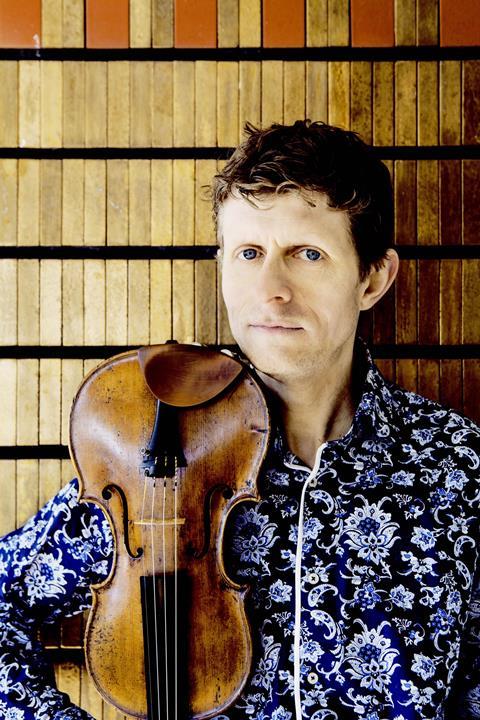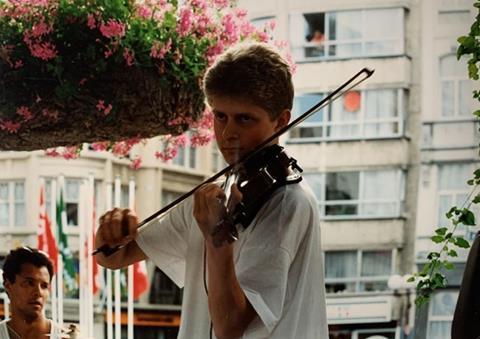The Dutch violinist recalls his journey to discovering his own distinct style and sound

Discover more Featured Stories like this in The Strad Playing Hub.
Read more premium content for subscribers here
When I was studying at the Amsterdam Conservatoire I had already discovered the music of Stéphane Grappelli. But since no one was teaching it, I would go to the camps of the Sinti people and jam with them to learn the style through osmosis. It was a real culture shock having come from the classical tradition. You use your eyes and ears much more than words.
I was very lucky that my classical teachers endorsed my choice to combine classical playing with improvisation. One such was my master’s teacher István Párkányi. By the time I came to study with him, I was already touring in gypsy jazz bands, and my jazz and classical sounds were two distinct things. He helped me to combine them by making me realise that both are just violin playing, with the same principles and techniques. Don’t think about schools of playing; just consider what sounds you want and what you need to do to achieve them.
Having the confidence to say ‘let’s try it’ is the real success
This combination of styles would also come to define my composition. I remember Grappelli telling me when I was 19, after I had played one of his works for him: ‘It’s OK for me to play this music; I’m old! But you’re young and you need to play your own music.’ Years later, when I had begun composing, I realised it would be a way of merging my jazz performing with my classical background and satisfying both skills. In a way, I see most musical genres as having evolved as far as they can, and the logical step forward seems to be combining them.
I think there is a lot to be gained by having teachers that don’t play your own instrument. In my case, whether it was gypsy guitarists or jazz saxophonists, all had an immense influence. They observe the story you are telling instead of making minor technical tweaks. And what matters most for your career, if you already play at a high level, are communication skills.

I would highly recommend improvising, regardless of style, for any musician. It gives players so much confidence. Very often I see musicians saying they can’t play for others when asked in an impromptu setting, because they ‘don’t have their music’. This is such a wasted opportunity to be an ambassador for music! If you can improvise, you can quickly play something, and you don’t have to be God to do it! This translates into confidence when performing any type of music.
For young musicians getting into non-classical styles, my advice would be to dream big and to give yourself time to try things out. Grappelli’s other piece of advice for me was always to say ‘yes’. And you can see that in his career; he had some collaborations that weren’t as good as others, but it doesn’t matter. For me, having the confidence to say ‘let’s try it’ is the real success.
INTERVIEW BY RITA FERNANDES
Read: Sentimental Work: Tim Kliphuis
Read: Masterclass: Tim Kliphuis on Stéphane Grappelli’s Tournesol
Discover more Featured Stories like this in The Strad Playing Hub.
Read more premium content for subscribers here
The number one source for playing and teaching books, guides, CDs, calendars and back issues of the magazine.
In The Best of Technique you’ll discover the top playing tips of the world’s leading string players and teachers. It’s packed full of exercises for students, plus examples from the standard repertoire to show you how to integrate the technique into your playing.
The Strad’s Masterclass series brings together the finest string players with some of the greatest string works ever written. Always one of our most popular sections, Masterclass has been an invaluable aid to aspiring soloists, chamber musicians and string teachers since the 1990s.
American collector David L. Fulton amassed one of the 20th century’s finest collections of stringed instruments. This year’s calendar pays tribute to some of these priceless treasures, including Yehudi Menuhin’s celebrated ‘Lord Wilton’ Guarneri, the Carlo Bergonzi once played by Fritz Kreisler, and four instruments by Antonio Stradivari.













































No comments yet